Assistant Professor in Indigenous Literatures and Cultures, Simon Fraser University
The property
Simon Fraser University
Assistant Professor in Indigenous Literatures and Cultures
Department of English
The Department of English at Simon Fraser University invites applications for a full-time tenure track position at the rank of Assistant Professor in Indigenous Literatures and Cultures with a starting date of July 15, 2025. Pursuant to Section 42 of the B.C. Human Rights Code, preference will be given to candidates who self-identify as Indigenous, including First Nations, Metis, and Inuit candidates from Canada, Native American candidates from the United States, and Indigenous candidates from Mexico, Central and South America, the Pacific Islands and Oceania. Such candidates who wish to qualify for preferential consideration are requested to self-identify in their application.
We encourage applications from candidates with expertise in Indigenous literatures in lands claimed by Canada and/or America, and/or global Indigenous literatures, especially Pacific Indigenous literatures. As well, we welcome complementary expertise in at least two of the following areas (listed alphabetically): anti-colonial and decolonial studies, Black and Indigenous solidarities, community engaged/based research, creative writing, critical race studies, the Digital Humanities, graphic novels and comic books, Indigenous archives and print culture, Indigenous critical/creative methods, feminisms, futurisms, Indigiqueer/Two Spirit studies, land-based pedagogy, multidisciplinary Indigenous media, orature, performance studies, poetry and poetics, and Residential School literatures.
Qualifications
Excellence in research and teaching are the primary criteria for this position. The candidate will have a strong record of research productivity commensurate with their experience, and the capacity to create courses based on their research interests in consultation with the department regarding its changing curriculum. Ideally, candidates will incorporate Indigenous cultural knowledge into their work and have lived experience maintaining trusting and ethical relationships with Indigenous communities and/or organizations. The successful candidate will have a PhD completed by the appointment start date; however, PhD candidates with solid indication of imminent completion may be hired at the rank of Instructor and will be promoted to the rank of Assistant Professor upon completion of the PhD.
The successful applicant is expected to significantly enhance the Department of English’s and the University’s research strengths and help sustain the collegial atmosphere within the Department. The teaching load for this position is 2/2, and includes courses at all levels of the undergraduate curriculum and the graduate program.
Applications should include:
- A letter describing your interest in the position and your qualifications
- A Curriculum Vitae
- A scholarly publication or other suitable writing sample, such as a dissertation chapter
- A concise teaching dossier
- Confidential letters from three references
- Candidates are encouraged, but not required, to submit a self-identification narrative/story of their Indigenous lived experience.
This is a junior faculty position. Only those eligible to be appointed or promoted to the rank of Assistant Professor will be considered. The position is subject to availability of funding.
Review of complete applications will begin November 1, 2024 and continue until the position is filled. All applications will be treated in confidence. Please submit all applications electronically, and have referees send their confidential letters, to Dr. Stephen Collis, Chair, Department of English at englsec@sfu.ca.
About the Department and SFU
The successful candidate will have the option of joining the burgeoning interdisciplinary community of scholars of Indigenous literatures and media at SFU, a university with a long history of engaging with Indigenous communities and Indigenous issues. Prompted in part by the United Nations Declaration on the Rights of Indigenous Peoples (2007) and by the Final Report and Calls to Action of the Truth and Reconciliation Commission (2015), SFU formed the Aboriginal Reconciliation Council (ARC). Subsequently, the ARC report, Walk This Path with Us (2017), has guided changes including the appointment of a Director of Indigenous Initiatives and Reconciliation, increased hiring of Indigenous faculty, and the construction of The First Peoples’ Gathering House, which is scheduled to be open by the beginning of the appointment.
SFU's three campuses are located on the unceded, ancestral, and traditional territories of the xʷməθkwəy̓əm (Musqueam), Skwxwú7mesh Úxwumixw (Squamish), kʷikʷəƛ ̓ əm (Kwikwetlem), Səlil ̓wətaɬ (Tsleil-Waututh), q̓íc̓əy̓ (Katzie), Qayqayt, Kwantlen, Semiahmoo and Tsawwassen peoples, and our students are of diverse ethnic, cultural, linguistic, and national heritages. Recognizing the unceded traditional Coast Salish territories, we aspire to foster and honour Indigenous resurgence as well as a plurality of decolonizing and anti-racist practices. The candidate will join a department committed to a vibrant culture of research and teaching. The English Department has 25 accomplished faculty, over 500 undergraduate majors and minors, and over 60 M.A. and Ph.D. students working in all areas of English studies, with notable strengths in contemporary Canadian, Indigenous, and diasporic literatures; environmental humanities; creative writing; print culture; and the Digital Humanities. We offer classes on three campuses in the metropolitan Vancouver area, as well as comprehensive distance education courses, joint majors, and opportunities for cooperative education. BC’s lower mainland, including the city of Vancouver, is globally renowned for its cosmopolitanism and livability.
Simon Fraser University is an institution whose strength is based on our shared commitments to diversity, equity, and inclusion. Diversity is an underlying principle of our Strategic Vision, which pledges SFU to “foster a culture of inclusion and mutual respect, celebrating the diversity reflected among its students, faculty, staff, and our community.” SFU is committed to ensuring that no individual is denied access to employment opportunities for reasons unrelated to ability or qualifications. Consistent with this principle, SFU will advance the interests of underrepresented members of the work force, specifically Indigenous peoples, persons with disabilities, racialized persons, and women; embrace gender and sexual diversity; ensure that equal opportunity is afforded to all who seek employment at the University; and treat all employees equitably.
SFU offers several benefits and services, including a Mortgage Subsidy and Down Payment Assistance benefit, aimed at creating a more inclusive and accessible campus community for faculty. Please see the Faculty Relations, Benefits and Service page and Collective Agreement for more details. SFU is also committed to ensuring that the application and interview process is accessible to all applicants; if you require accommodations or have questions about SFU benefits, services, accommodations policies, or equity considerations, please contact the Director, Equity, Diversity and Inclusion, in Faculty Relations.
Faculty salaries at SFU are based on the salary scales bargained between the University and the SFU Faculty Association. A reasonable estimate of the salary range is as follows:
- Instructor (ABD Candidates): $98,340 - $104,700
- Assistant Professor: $104,700 - $133,322
All qualified candidates are encouraged to apply; however, Canadian citizens and permanent residents will be given priority.
Personal information that forms part of an application is collected under the general authority of the Freedom of Information and Protection of Privacy Act, applicable University Policies, and the SFUFA/SFU Collective Agreement. For further details see the full Collection Notice.
No Comments
Listing Location
More from this employer
Luce Curatorial Fellow, Portland Art Museum
Related listings


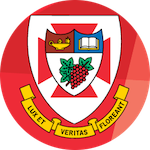

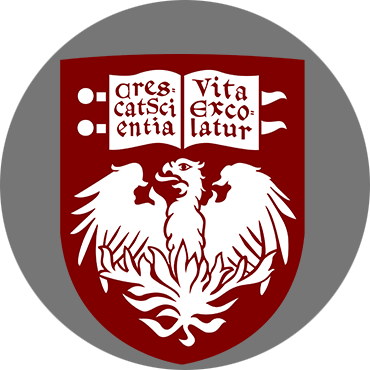

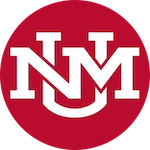
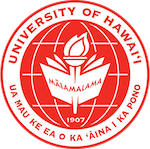


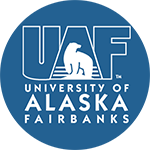
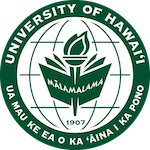
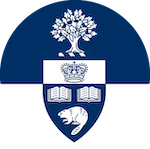

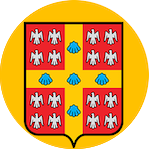
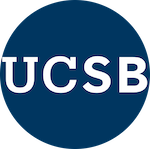




Sorry, the comment form is closed at this time.